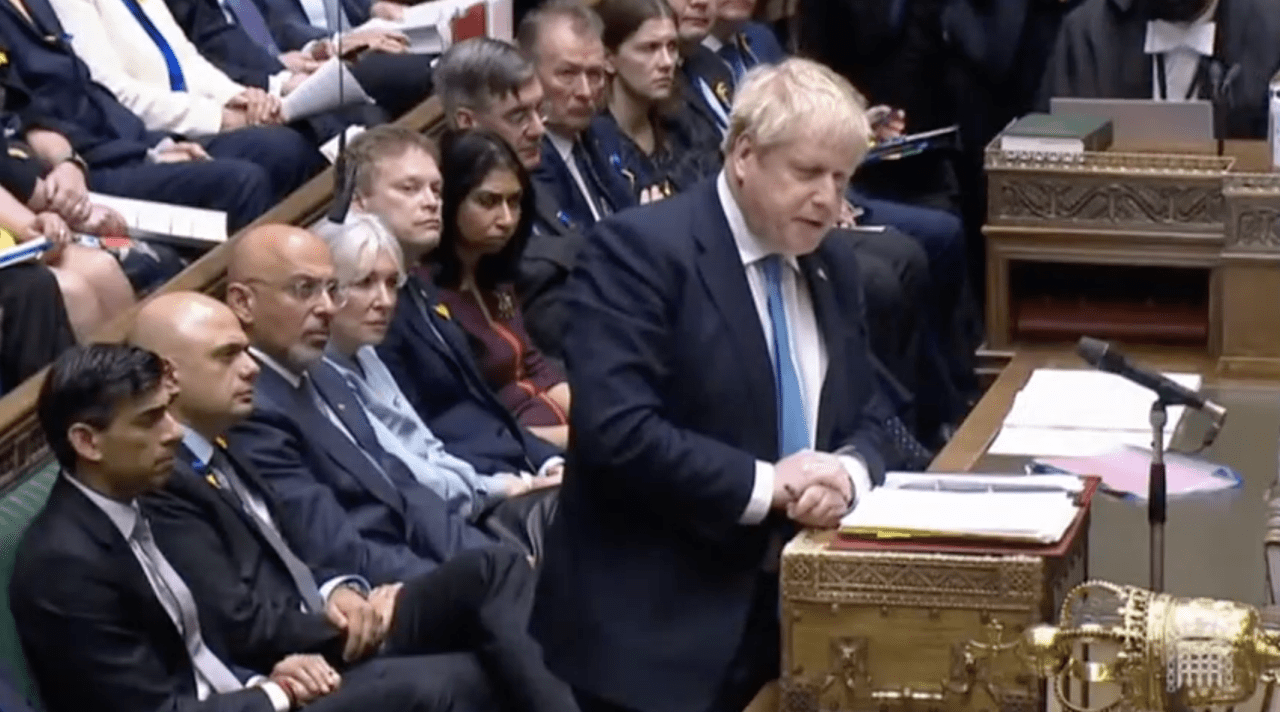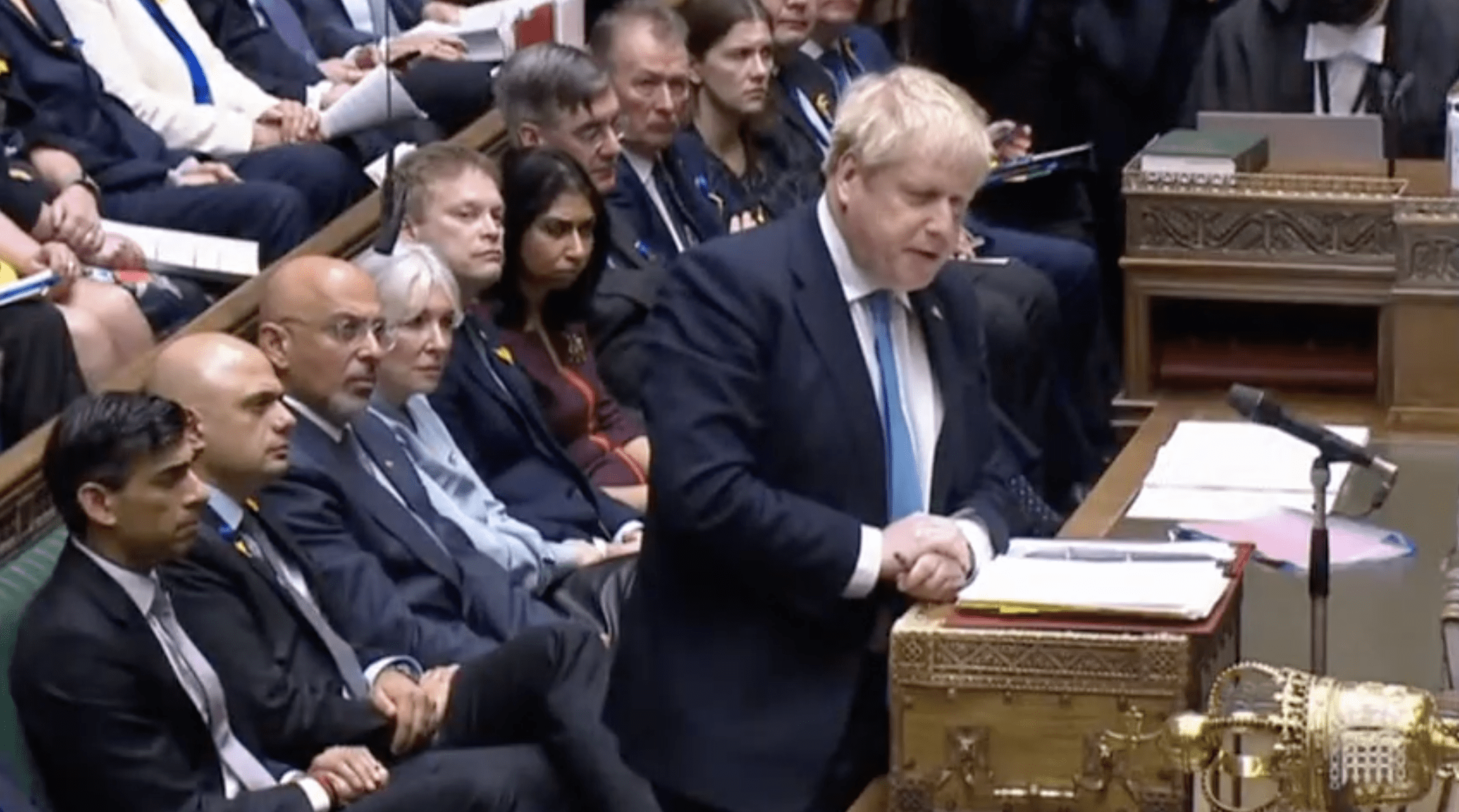Prime Minister’s Questions today had a strange tonal disconnect to it. The session began with a standing ovation for the Ukrainian ambassador Vadym Prystaiko, who was watching from the gallery. Normally, clapping is banned in the Commons, but today the Speaker tore up protocol and MPs from across the house (and journalists, who by convention don’t clap anything) stood up to applaud Prystaiko. It was a moving moment. But it was not matched by the tone of Boris Johnson, either in his exchanges with Keir Starmer or indeed in the rest of the session.
The Labour leader chose to focus on sanctions and economic crime. He asked why certain oligarchs, including Roman Abramovich, had not been sanctioned by the UK, saying it was ‘shameful’ that we only know about their London properties because Alexei Navalny risks his life to expose them. He argued that oligarchs were getting 18 months to sell their properties thanks to a delay in the implementation of the register of ownership in the Economic Crime Bill. And he told the chamber that ‘Putin thinks that we are too corrupted to do the right thing’, calling on Johnson to ‘sanction every oligarch and crack open every shell company so we can prove Putin wrong’.
Johnson’s answers repeated an assertion that the UK was leading on sanctions, that he was proud of what had been done so far. But he was not thunderous or particularly emotional: that was left to backbenchers such as Alec Shelbrooke, whose voice cracked as he asked MPs to imagine it was their relatives about to be murdered and demanded to know what the Prime Minister could do to protect Kiev from the Russian convoy heading towards it. The most passionate Johnson managed to get was when he replied to a question from Labour’s Bill Esterson, who suggested that Conservative MPs donate money they’d received from Russians to a humanitarian fund to help Ukrainians. Johnson shot back with genuine anger that this wasn’t about the Russian people. It was a strange question to choose to direct so much emotion at.
One of the reasons for this is that the UK is not getting involved in military action in Ukraine. Johnson and all other western leaders have decided that the risk of a world war three is just too great from direct combat between Nato countries and Russia. But this means that much of the conversation is about the limits on action, which necessarily limits the amount of emotion. It was very clear, though, that MPs across the House are anxious for the UK to do far more.
There was, naturally, a more measured, consensual approach from across the House to this normally tribal and noisy session. Even SNP leader Ian Blackford was restrained, offering his support to the work the government was doing to support Ukrainians in his first question. He accused Putin of war crimes, and Johnson agreed, saying for the first time that ‘what we have seen already… in my view already fully qualifies as a war crime’. Blackford pressed him on a matter that the UK has quite clearly not led the West on, which is Ukrainian refugees. Everything that has been announced so far has been after some pressure and often a number of stupid mistakes, such as suggesting refugees might come here on fruit-picking visas.
Once again, Johnson was unable to explain what he meant when he said that Putin must fail, even in relation to Ukraine, let alone whether this mission represents the beginning of the end of the Russian President’s reign. That’s partly because most in the West expect this war to go on for much longer and to be far more horrific than it already has been, which means it’s really a bit early to talk about failure. Because by the time Putin does fail, if he does, he could still have succeeded in leaving a democratic country in ruins. Putin might well fail, but the West knows that this won’t look like success.








Comments